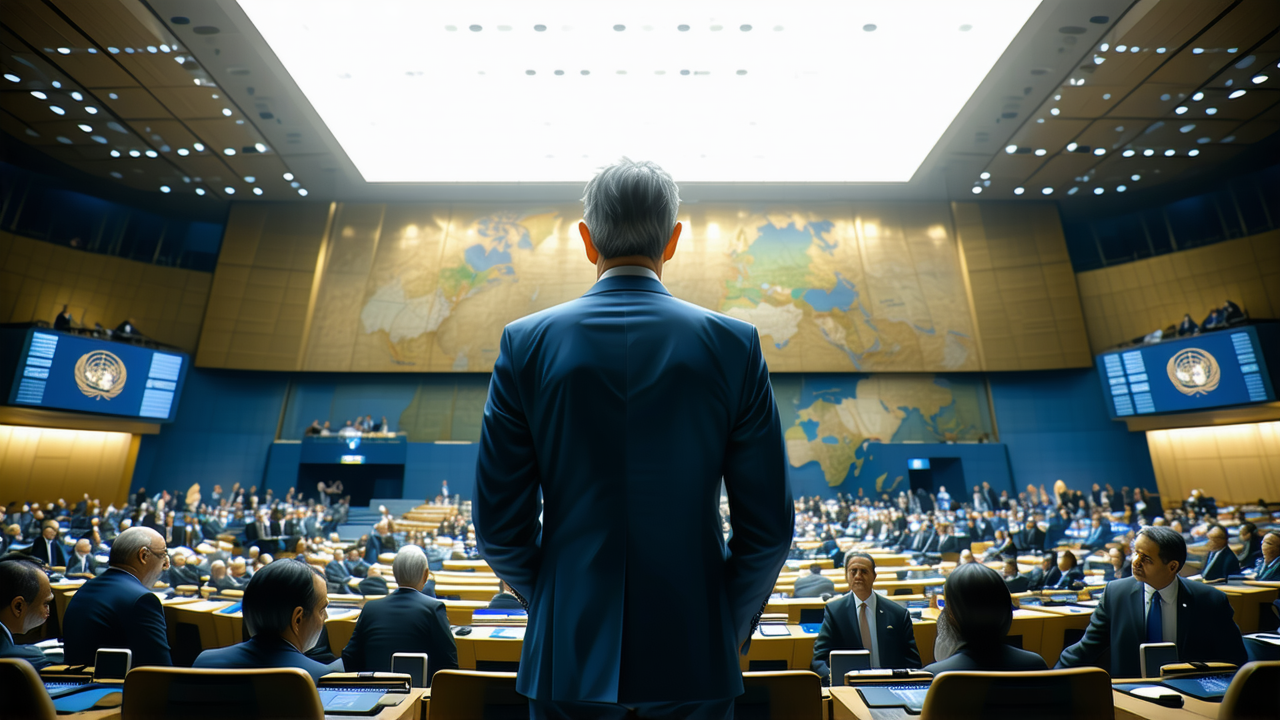New Zealand Holds Back on Palestinian Statehood Recognition
Foreign Minister Peters: New Zealand Not Ready to Recognize Palestinian Statehood
During a high-profile address to the United Nations General Assembly in New York, New Zealand's Foreign Minister Winston Peters made a clear statement that the country is 'not ready' to formally recognize Palestinian statehood. The declaration, delivered in the context of escalating tensions in the Middle East, has sparked significant debate within New Zealand and beyond.
Peters emphasized that for New Zealand to consider recognizing Palestinian statehood, two critical conditions must first be met: a cessation of violence and the resumption of humanitarian aid to the affected regions. He acknowledged that such a decision is 'inevitable' in the long term, but stressed that New Zealand must ensure the process aligns with its values of peace and stability.
The stance taken by New Zealand aligns with that of other nations such as Singapore and Japan, which have adopted a cautious approach to the issue. However, it diverges from the positions of New Zealand's Five Eyes allies—Australia, the United Kingdom, and Canada—whose governments have formally recognized a Palestinian state. This divergence has raised questions about the future of multilateral cooperation among these nations on global issues.
Domestically, the decision has been met with strong criticism from the Labour Party and the Green Party, which have labeled the government's approach as 'cowardly' and warned that it places New Zealand on the 'wrong side of history'. Both parties argue that New Zealand should take a more proactive role in supporting Palestinian statehood as a means of promoting long-term peace in the region.
According to insiders, the government made an in-principle decision on the issue about two weeks ago, with the public announcement delayed until Peters delivered his speech at the UN. During the address, Peters reiterated the urgent need for a ceasefire in the ongoing conflict between Israel and Hamas, and called for the return of hostages held by Hamas since its attack on Israel on October 7, 2023.
The Israeli military campaign in Gaza, which has reportedly resulted in the deaths of over 60,000 people, has been a central focus of international concern. Peters also highlighted the importance of humanitarian relief efforts in the region, stating that the situation must be stabilized before any formal recognition of Palestinian statehood can be considered.
Israeli Prime Minister Benjamin Netanyahu has been highly critical of the recent recognition of Palestinian statehood by Australia, the UK, and Canada. He described the move as a 'huge reward to terrorism' and vowed to block the establishment of a Palestinian state. Netanyahu's speech at the UN, which was broadcast on Israeli military loudspeakers in Gaza, accused European leaders of pushing Israel toward 'national suicide' and reflected deepening tensions on the global stage.
Palestinian foreign ministry official Adel Atieh responded to Netanyahu's remarks by calling them the 'speech of a defeated man' and stating that they revealed 'neither vision nor perspective'. He argued that Netanyahu's comments reflect a growing sense of 'isolation' and 'anxiety' among Israeli leaders who, he claimed, are increasingly aware that they are on the 'wrong side of history'.
Notably, Netanyahu did not address the issue of potential annexation of the West Bank, a move that some members of his cabinet have threatened as a way to eliminate the prospects for a viable Palestinian state. This omission has been widely criticized by international observers and human rights organizations.
New Zealand remains committed to the two-state solution as the best path to achieving lasting peace in the region. However, the government has chosen to pause recognition of Palestinian statehood until the conditions for peace and humanitarian relief are met. This decision reflects a delicate balancing act between supporting peace and ensuring that the process is both just and sustainable.
As the situation in the Middle East continues to evolve, New Zealand's stance on Palestinian statehood will likely remain a subject of intense debate both domestically and internationally. The government's approach underscores the complex challenges of navigating global diplomacy while upholding national interests and values.
